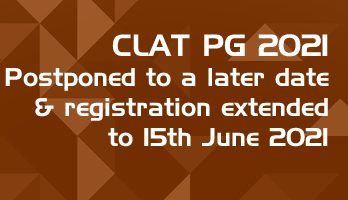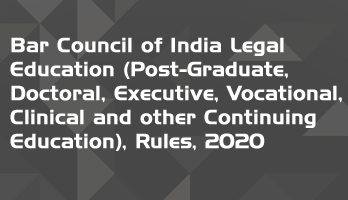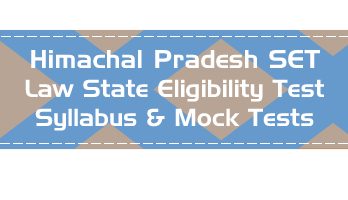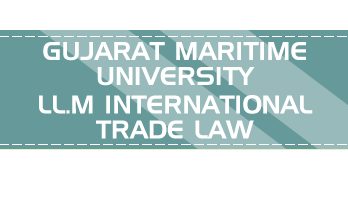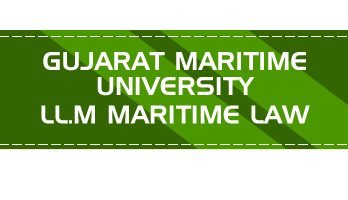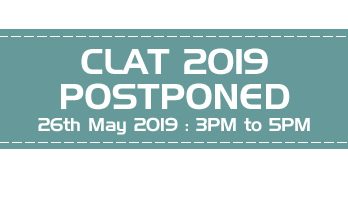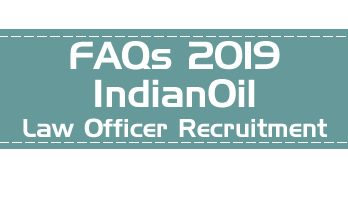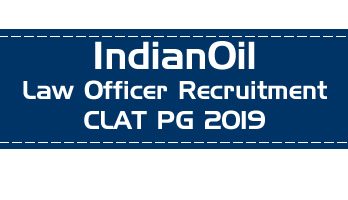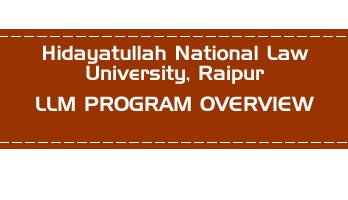- Updated as per latest CLAT PG pattern
- Overall there are 300+ comprehension passages - with 2350+ questions
- 100 passages are provided as stand-alone mini mock tests
- 120 passages are combined to form 10 full-length mock tests
- 2020, 2021, 2022, 2023 and 2024 (New Pattern) Question papers included as mock tests
- Answers include the reason or 'rationale' for better understanding
- Order of the questions and answer choices are shuffled in every attempt for better practice
- The passages are of various lengths and complexities for better practice
- Unlimited access & practice - valid for one year from date of purchase
- Accessible 24 x 7 via Smart-Phone browsers and Desktops
- More the 100 LawMint users were selected by various top NLUs in 2020, 2021, 2022 and 2023 - Including NLSIU, NALSAR, NLU-J, WBNUJS
- Our users were also selected for the IIT KGP LLM, NLU Delhi (AILET PG) & DU LLM programs
Also included in the pack : (Useful for non-CLAT LLM entrance exams) :
- 11 CLAT PG old pattern previous Papers - 2009 to 2019 (as mock tests)
- 50 full-length old MCQ format mock tests (100 questions each)
- 50 old pattern MCQ mini-mock tests (25 questions each)
- Summarized overview of Important Jurisprudence topics (For Subjective & Objective questions)
- Overview of all Constitutional Amendments
- All Tests & Previous Papers are timed and have Negative marking for realistic simulation
- Questions & Answer Choices randomly shuffled in every attempt for better practice
Authentic Feedback from previous LawMint users :
I got AIR 21 in CLAT PG. Thank you so much. Your mocks helped me a lot in my preparation 🙂 - Ayushi Jain
I have subscribed to your CLAT PG program and got AIR 36 in this year CLAT PG. I have also secured AIR 54 in AILET PG exam. I would like to thank you. Your mock paper really helps a lot - Shrashank Tripathi
I would like to thank you for the CLAT PG LLM COURSE. Practising mock tests there helped me in getting confidence and hence I was able to get AIR 45 in CLAT PG LLM - Akshay Awasthi
A year back, I relied on the IIT Kharagpur RGSOIPL mock test series by LawMint to prepare for my RGSOIPL entrance test. Few months back, I relied on your UGC NET Law series to prepare for UGC NET. I was the topper of the RGSOIPL entrance, and have cracked JRF in UGC NET. All thanks to LawMint - Anshuman Sahoo
"I got AIR 18 in CLAT PG and General Category rank 28 in AILET PG. I want to thank you for helping me practice well in controlled conditions from any place. It gave me a lot of confidence and I took the tests while travelling too. I also made it to IIT Kharagpur." - Vinodharani
"Lawmint has been of great help to me in securing AIR 25 in AILET PG and AIR 29 in CLAT PG examinations. The subjective and objective approach of the test series kept me up to date with the latest exam pattern." - Bhawna Nanda
"I, Nimmy Saira Zachariah joined you clat test series. I cleared AILET PG with 30th rank. Your test series were of immense help as it gave me clear idea of where my preparations stand thank you once again law mint." - Nimmy S Z
"Hey guys. Where do I start? If I thought that getting AIR 59 in Clat PG was it, then how wrong I was. With Lawmint now I have cracked UGC NET as well." - Joyanta Chakraborty
Q : Can I do an LLB while pursuing a B.Com?
Ans :
No.
LLB is a higher Bachelors degree of sorts. The eligibility requirement for pursuing a LLB is that the student should have a prior Bachelors degree. (Though LLB itself is technically a Bachelors degree)
So, to pursue a 3 year LLB – you should have a Bachelors degree in any field – BA/BSc/BCom/MBBS/BTech/BE/BDS with the minimum eligibility marks.
To pursue a 5 year LLB, you need to have cleared a 10+2 (PUC) with the requisite marks. This is because the 5 year LLB is a dual degree program (BA+LLB, BBA+LLB etc.)
While theoretically you can pursue a 5 year LLB along with a separate BCom, it would be against the rules since BCI does not allow LLB students to pursue another full-time course in parallel. I would strongly recommend not doing anything like this since you may end up losing your registration completely.
The best choice would be to enroll in a 5 year BA LLB, BBA LLB or a BCom LLB, so that you complete the entire course in 5 years.
Separate BA/BSc/BCom/BBA (3 years) + LLB (3 years) = 6 years
BBA/BCom/BA LLB (Integrated dual degree program) = 5 years
There are plenty of Tier 3 colleges that offer admissions to the integrated LLB program on a walk-in basis (as long as you meet the minimum eligibility criteria)
To study in a premier Tier 1 / 2 college, you will need to take exams like the CLAT.
Q : Is it mandatory to qualify in the AIBE examination for a law graduate?
Ans :
Only if you wish to practice as an Advocate . . .
- All Advocates are Lawyers
- All Lawyers are NOT advocates
After completing an LLB, a person becomes a Lawyer.
An Advocate is a person who is practicing Law as his primary profession and is eligible to represent and appear on behalf of clients in a Court of Law.
To become an Advocate, the Lawyer has to register with the respective state Bar Council.
There is a ‘grace period’ of two years from the date of enrollment with the Bar Council, during which a LLB graduate can practice as a Advocate without passing the All India Bar Exam.
So, to practice without a break, the Advocate has to pass the AIBE – All India Bar Exam within two years of enrollment with the State Bar Council.
If the Lawyer is unable to clear the AIBE, he/she has to stop practicing as a lawyer and can recommence practice only after clearing the AIBE.
However, there is no restriction on a LLB graduate i.e. a Lawyer, for pursuing higher education (LLM / MBA etc.) or taking up any other employment on the basis of the LLB or even starting any other business.
If you wish to practice as a Advocate / Lawyer in India :
- Complete a BCI recognized LLB
- Enroll with State Bar council as an Advocate
- Start practicing as an Advocate
- Clear the All India Bar Exam – AIBE within two years of enrollment
- If unable to clear – stop practice as a Advocate – continue to attempt AIBE and clear it.
- Resume practice as a lawyer.
If you don’t intend to practice and you are involved in any other business or in full time employment, you can skip the AIBE.
But I strongly recommend that all students should clear the AIBE at the earliest possible, since it is mandatory whenever you wish to practice.
It is simpler to clear the exam when you are still fresh with your LLB subjects. (and still have all your books)
At this time, there is no restriction in terms of number of attempts or any age limit for taking up the AIBE. So even if you did not take the AIBE when you completed your LLB, you can do it at any time when you wish to practice.
Q : What topics are chosen by NLU Delhi for the AILET PG essay?
Ans :
If you take a look at the subjective part of the recent four years, i.e. AILET PG 2015, 2016, and ; you will see that the topics have been quite varied.
However, there are some general patterns :
- Some questions are usually based on the recent developments in the Legal arena. For example, when there was action in the area of ‘Right to privacy’, there were questions about that in the AILET PG exam.
- When there was a discussion around the judicial activism and the proactive role being played by the Supreme Court, there were questions asking candidates to evaluate both sides of the argument.
- Questions from Jurisprudence – asking students to explain, compare or contrast different schools, have appeared in the paper.
- There is usually one question from Constitutional law – asking candidates to analyse or illustrate a particular topic with respect to how the Indian Constitution deals with the topic.
In short, if there are three questions – they may be spread across the above topics; i.e. one question from Constitutional Law, one from Jurisprudence and one around Contemporary legal issues.
Remember, in many essay type questions, there is no ‘Right’ or ‘Wrong’ answer. There will be two sides to a debate; and you will need to consider both sides of the argument.
What the subjective part is trying to evaluate is your ability to write and present your idea in a lucid and concise manner.
You should read some good articles (Preferably from a well edited publication like ‘The Hindu’ newspaper) and understand how good writers structure a story – The headline, the opener, the main body, the arguments and the conclusion.
Practice writing essays – it helps improve your handwriting and will also teach you time-management. I.e. You need to collate and organize your thoughts mentally and put them down in a paper in a structured format within the limited time available.
Q : Is it mandatory to attend all questions in the NET paper 1?
Ans :
No. But yes!
Is it mandatory ? No.
Is it highly recommended ? Yes.
The rationale behind my answer is simple : There is no negative marking in the UGC NET exam, so you don’t lose anything by answering all questions.
Even if you don’t have time to read and understand the questions, you should take a few minutes towards the end of the exam and choose an answer for all questions.
- It might be a guesstimate
- It might be a ‘tukka’
- It might be a blind choice – where you did not read the question or the answers – just select something and click next
Since there are 4 choices for every question; and one of which is correct – you have a 25% chance of selecting a right answer even with a random guess.
If your answer is wrong, you don’t loose anything.
For other exams with negative marking . . .
Even if there is a 0.25% negative marking; you still have a good possibility of getting at least 0.25 marks for every four questions you answer.
(The math: You guess 4 questions – 25% chance since there are 4 answer choices – 1 answer is correct, so you get one mark – but 3 questions were wrong – so you lose 0.25 x 3 = 0.75 marks. Net, you still get 1.0 – 0.75 = 0.25)
Q : Is it advisable to pursue LLM in IPR from RGSOIPL, IIT Kharagpur?
Ans :
Why not ?
Consider the following facts :
- IIT Kharagpur is already a reputed educational Institution in India, even before the RGSOIPL Law School was started.
- The institute is a well known brand in India (and even abroad to a certain extent) and there is a strong alumni network. – The IIT tag does open some doors.
- The RGSOIPL was started specifically with a focus on Intellectual Property Law and it’s programs are considered to be some of the best in this area. – whether it is private practice or the corporate world, there is a decent demand for good IP Lawyers.
- IIT Kharagpur already has excellent infrastructure and facilities.
- It is currently ranked at 4th place under the Law colleges category, in the National Institutional Ranking Framework.
- The institute is quite stringent in terms of its eligibility criteria for admissions. (CGPA 6.5 in 10 point scale or 60% marks for GE/OBC candidates and 6.0 and 55% marks for SC/ST/PWD candidates)
IMHO, the most important factor that can influence your learning and your college experience at a PG level is your peers i.e. Classmates.
The Professors are important, yes, but a lot of learning happens through your interactions and conversations with your classmates – and given the admissions process + the small batch size, you will be studying with a great set of students.
As per the official admissions notification for IIT KGP RGSOIPL, there is a mention that the LLM program offers Specialization in a range of subjects including :
- corporate law,
- competition law,
- intellectual property,
- constitutional law,
- taxation,
- criminal law & justice
- international law.
IPR need not be your mandatory specialization; you can choose any of the other concentrations.
So, IIT Kharagpur’s Rajiv Gandhi School of Intellectual Property Laws (RGSOIPL) is certainly a great institute for pursuing an LLM degree; on par with the top NLUs.
There are only 30 approved LLM seats in RGSOIPL and the actual number of seats open for admission is lower, so the demand for each seat will be quite high.
Apart from the initial screening based on past academics, there is the shortlisting through the RGSOIPL entrance exam, and then there is an interview to be cleared.
If you make it through the selection process and get a seat, I would highly recommend taking it up.
Yes, there are comments about having to study an additional year, while other institutions are moving to a one year LLM model. But in the long run, the extra year does not matter.
Q : What are the cutoff marks for IIT KGP in the LLM entrance exam?
Ans :
Not officially published . . .
Step 1 – Shortlisting based on meeting minimum marks criteria in previous academics
Step 2 – Online Entrance exam
Step 3 – Shortlisted for interview basis entrance exam performance
Step 4 – Final selection, possibly based on aggregate of scores from previous three steps
In detail . . .
The IIT KGP RGSOIPL is quite stringent in terms of its basic eligibility criteria (previous academics) for admissions. (CGPA 6.5 in 10 point scale or 60% marks for GE/OBC candidates and 6.0 and 55% marks for SC/ST/PWD candidates)
For candidates with the prerequisite marks in their LLB degree, they will be eligible to take the entrance exam – which is conducted online in a few major cities across India.
Basis the performance in the Online exam, shortlisted candidates will be called in for a personal interview.
Now, there is no clarity on whether the final admissions are based on the aggregate score of all these three components or each round is just a filtration round.
However, logically, the final admissions are most likely based on an aggregate score calculated with some specific weightage for each round – previous academics, online entrance exam scores and interview performance scores.
So, to answer your question – the specific scores / ranks from the RGSOIPL LLM entrance exam are not published. So, the ‘cut-off’ marks are not available.
Q : What is the syllabus for the LLM entrance (2017) from IIT Kharagpur?
Ans :
Syllabus for the entrance exam . . .
The official notification for the RGSOIPL LLM entrance exam just specifies that the entrance exam will consist of 120 ‘Objective type’ questions around ‘Legal Aptitude’. There is also a set of sample questions provided.
Previously, there was a subjective questions part in the exam – with essay type answers, but the latest pattern is completely objective. (More conducive for the online exam process.)
Even the number of questions has been rationalized from the previous 200 objective to the current 120 objective questions – to be answered in 120 minutes.
Looking at the sample questions; the syllabus for the entrance exam will be from across the important subjects covered in the LLB program :
- Constitutional Law of India
- Jurisprudence
- Law of Contracts
- Sale of goods Act
- Law of Torts
- Consumer Protection Act
- Family Law (Hindu law & Muslim law)
- Public International Law
- Criminal Law
- Company law and Partnership
- Intellectual Property Rights
- Cyber Law
- Environmental Law
- Contemporary legal issues
There is no specific break-up given in terms of the questions from each area; however looking at the model paper, we can safely deduce that Constitutional law, Jurisprudence will have a greater share of questions; followed by CPC, IPC, CrPC, Family law, Corporate law and other areas.
There is also no specific mention of any negative marking in the exam. However, it would be preferable to practice assuming that negative marking is used for wrong answers.
IIT KGP has not officially published any previous question papers for the LLM entrance exam.
Q : How can I get the previous years LLM entrance question papers of IIT Kharagpur?
Ans :
In general, You can’t.
IIT Kharagpur has not been officially publishing the previous test papers for the RGSOIPL LLM entrance exam.
Since the exam has been ‘online’ for a couple of years now, I am not sure if students get to see their answer scripts or an official answer key.
The RGSOIPL official admissions process just states that the shortlisted students will be called in for the next round; i.e. the interview round.
“The candidates shortlisted for online test will be informed through email only. Their names will also be notified in the web page. However, candidates can see their status through login and download the interview letter, if shortlisted.”
Which means that students may not see their rankings, official answer keys or their transcripts.
In short, unless you know somebody who previously took the paper exam, or has a copy of their online exam transcript, or you know someone at IIT KGP, getting the previous year entrance question papers will be very difficult.
So how to prepare for the RGSOIPL entrance ?
- The official admissions notification for the IIT KGP RGSOIPL specifies that the entrance exam will consist of 120 ‘Objective type’ questions around ‘Legal Aptitude’.
- There is also an old PDF document tagged as a Model Question paper, with a set of sample questions.(This document has not been updated as of the date of this answer, since it still has a subjective part, which is not included in the current pattern of the exam. Moreover, the Model question paper is also incomplete, since it has only 80 questions – whereas the actual exam will have 120 questions.)
Looking at the sample questions; the syllabus for the entrance exam will be from across the important subjects covered in the standard LLB program across India : (The subjects are listed in an alphabetical order)
- Company law and Partnership
- Constitutional Law
- Consumer Protection Act
- Criminal Law
- Cyber Law
- Environmental Law
- Family Law (Hindu law & Muslim law)
- Intellectual Property Rights
- Jurisprudence
- Law of Contracts
- Law of Torts
- Public International Law
- Sale of goods Act
- Contemporary legal issues.
There is no specific break-up given in terms of the weightage for each subject are.
But we can estimate that Constitutional law, Jurisprudence will have a greater share of questions; followed by CPC, IPC, CrPC, Family law, Corporate law and other areas.
Q : Can I do an LLM from IIT? If yes, which ones?
Ans :
Yes.
You can pursue an LLM program from IIT Kharagpur’s Rajiv Gandhi School of Intellectual Property Law (RGSOIPL), which offers specialization in a range of subjects including :
- corporate law,
- competition law,
- intellectual property,
- constitutional law,
- taxation,
- criminal law & justice
- international law.
While the Law School is focused on IPL, you can certainly take up any of the other concentrations (specialization).
Considering that the RGSOIPL is noted for being a center for study of Intellectual Property Law, this specialization will usually have a higher demand than the others.
Getting into the IIT KGP RGSOIPL will take quite a bit of effort. The sanctioned number i.e. approved number of seats for the LLM program is 30. (Combined for all specializations). However, the actual number of seats opened every year will be lower.
The number of seats currently open will depend on the infrastructure (e.g. Hostel availability, Classroom capacity), faculty availability and other factors.
Also, 15% seats are reserved for SC, 7.5% for ST, 27% for OBC category students and 5% for Persons with Disabilities. (I don’t think there is any domicile reservation in IIT Kharagpur.)
Given that the institute has a great reputation and the Law School is also highly ranked, there will be significant competition for every seat.
Q : What are the job prospects of LLM from IIT Kharagpur and is it advisable to do LLM without specialization?
Ans :
Unlike an LLB, which can be a general course; an LLM is usually with a specialization. In some places, there might not be any specific mention of a ‘specialization’, but you will still be choosing your electives / optionals.
As per the official admissions notification for IIT KGP RGSOIPL, there is a mention that the LLM program offers Specialization in a range of subjects including :
- corporate law,
- competition law,
- intellectual property,
- constitutional law,
- taxation,
- criminal law & justice
- international law.
So, IPR need not be your mandatory specialization; you can choose any of the other concentrations.
Considering that the RGSOIPL is noted for being a center for study of Intellectual Property Law, this specialization will usually have a higher demand than the others.
About job prospects . . .
While campus placements may happen up to a certain extent, no tier 1 institute; be it an IIT, IIM or an NLU guarantees 100% placement.
Also, the batch size in RGSOIPL is quite small (less than the max approved 30 seats.) So, the campus placements may not be as formal and structured.
Not all LLM candidates will opt for placements.
- Some would prefer to study for the UGC NET or other exams.
- Some would prefer to prepare for the Judiciary and other exams.
- Some would start their own practice.
- Some would take up opportunities outside the college placement process.
With the smaller batch size, it would be easier for students to directly reach out to prospective companies, rather than have a formal campus process.
But yes, there will be a campus placement process.
Any of the current students should be able to clarify on how the process is structured currently.
Q : Is there any sample question paper for admission in RGSOIPL for an LLM?
Ans :
The official admissions notification for the IIT KGP RGSOIPL just specifies that the entrance exam will consist of 120 ‘Objective type’ questions around ‘Legal Aptitude’.
There is also an old PDF document tagged as a Model Question paper, with a set of sample questions. This document has not been updated as of the date of this answer, since it still has a subjective part, which is not included in the current pattern of the exam.
Moreover, the Model question paper is also incomplete, since it has only 80 questions – whereas the actual exam will have 120 questions.
Looking at the sample questions; the syllabus for the entrance exam will be from across the important subjects covered in the standard LLB program across India : (The subjects are listed in an alphabetical order)
- Company law and Partnership
- Constitutional Law
- Consumer Protection Act
- Criminal Law
- Cyber Law
- Environmental Law
- Family Law (Hindu law & Muslim law)
- Intellectual Property Rights
- Jurisprudence
- Law of Contracts
- Law of Torts
- Public International Law
- Sale of goods Act
In addition, there should be a few questions around Contemporary legal issues.
There is no specific break-up given in terms of the questions sourced from each area
Again, looking at the model paper, we can estimate that Constitutional law, Jurisprudence will have a greater share of questions; followed by CPC, IPC, CrPC, Family law, Corporate law and other areas.
Q : What are the fees of LLM course at IIT Kharagpur (RGSOIPL)? How is the placement record of LLM course?
Ans :
Fees should not be a problem . . .
I remember reading somewhere that the annual fees + expenses for the LLM program come to around INR 2 lakhs PA. So the two year program should work out to around INR 4 lakhs**
** The above numbers are just an approximation and current students / the Institute should be able to confirm the actual details.
In any case, fees should not be a problem for students who get an admission into the RGSOIPL – since many banks (both private and PSU) give loans without any collateral from students from Tier-1 institutions.
These education loans come with a repayment holiday of around 6 months after you get into a job or 1 year after competing your course, whichever is first. (Details and specifics will depend on the bank.)
About the placement record . . .
The batch size at RGSOIPL is quite small – the approved seats are 30 and the actual seats open for admission are less than that. So the placement process is probably more low noise than other programs – which is also one of the reasons why there are no specific LLM placement statistics published by the Institute.
This part of the answer is adapted from one of my recent answers to a similar question.
Are there placements in the RGSOIPL ? – Yes.
Is 100% placement guaranteed ? – No.
(No Tier-1 institute, including the IITs / IIMs / NLUs, promises 100% placement.)
Where are the students getting placed ?
IIT KGP RGSOIPL has not been officially publishing their LLM placement data on their website or in the placement brochures.
However, logically, the companies recruiting from this campus will be from among the same which recruit from the LLB program of the same institute and also from LLM programs of the Tier-1 institutes like the NLUs.
And not all LLM candidates will opt for placements.
- Some would prefer to study for the UGC NET or other exams.
- Some would prefer to prepare for the Judiciary and other exams.
- Some would start their own practice.
- Some would take up opportunities outside the college placement process.
How is the placement process ?
The placement process in most tier-1 institutes is mostly driven by the student body, with support from the institute placement cell and also from the alumni to a certain extent.
So, the placement process, especially for LLM, will depend on how proactive and aggressive the batch is; the general economic conditions and the profiles + aspirations of the students.
IIT KGP already has a reputation in the market, RGSOIPL is rated as one of the top Law Schools in India and since IPR is a growing field – the basic requirements for attracting companies are already in place.
With the smaller batch size, it would be easier for students to directly reach out to prospective companies, rather than have a formal campus process.
Any of the current students should be able to clarify on how the process is structured.
Q : Is the LLM course good at IIT Kharagpur?
Ans :
Yes.
Consider the facts that :
- IIT Kharagpur is already a reputed educational Institution in India, even before the RG Law School was started.
- The institute is a well known brand in India (and even abroad to a certain extent) and there is a strong alumni network.
- The RGSOIPL was started specifically with a focus on Intellectual Property Law and it’s programs are considered to be some of the best in this area.
- IIT Kharagpur already has excellent infrastructure and facilities.
- It is currently ranked at 4th place under the Law colleges category, in the National Institutional Ranking Framework.
- The institute is quite stringent in terms of its eligibility criteria for admissions. (CGPA 6.5 in 10 point scale or 60% marks for GE/OBC candidates and 6.0 and 55% marks for SC/ST/PWD candidates)
So, IIT Kharagpur’s Rajiv Gandhi School of Intellectual Property Laws (RGSOIPL) is certainly a great institute for pursuing an LLM degree; on par with the top NLUs.
However, since there are only 30 approved LLM seats (maximum) in RGSOIPL and the actual number of seats open for admission is lower (and also factor in the reserved seats), the demand for each seat will be quite high.
Apart from the initial shortlisting through the RGSOIPL entrance exam, there is also and interview to be cleared.
If you make it through the selection process and get a seat, I would highly recommend taking it up.
Q : What is the best way to prepare for the RGSOIPL LLM entrance test?
Ans :
For RGSOIPL, the sanctioned number i.e. approved number of seats for the LLM program is 30. (Combined for all specializations). However, the actual number of seats will be lower.
The number of seats currently open will depend on the infrastructure (e.g. Hostel availability, Classroom capacity), faculty availability and other factors.
Also, 15% seats are reserved for SC, 7.5% for ST, 27% for OBC category students and 5% for Persons with Disabilities. (I don’t think there is any domicile reservation in IIT Kharagpur.)
Being one of the top academic institutes in India; and as a school that is focused on IPR; there will be a high degree of competition for the limited number of seats.
Syllabus for the RGSOIPL LLM entrance exam . . .
The official notification just mentions that the entrance exam will be ‘Online’, consisting of 120 ‘Objective type’ questions around ‘Legal Aptitude’. There is also an old (incomplete) Model Paper with a set of sample questions provided in the official website.
Earlier, there was a subjective part in the exam (essay type answers), but the latest pattern is completely objective, especially since the exam is completely online now.
Previously, there were 200 objective type questions, which have been rationalized to the current 120 – to be answered in 120 minutes.
Looking at the sample questions in the Model Paper; the syllabus for the entrance exam will be from across the important subjects covered in the LLB program :
- Constitutional Law
- Jurisprudence
- Law of Contracts
- Sale of goods Act
- Law of Torts
- Consumer Protection Act
- Family Law (Hindu & Muslim Personal law)
- Public International Law
- Criminal Law
- Company law and Partnership
- Intellectual Property Rights
- Cyber Law
- Environmental Law
- Contemporary legal issues
There is no specific break-up given in terms of the questions from each area; however looking at the model paper, we can safely deduce that Constitutional law, Jurisprudence will have a greater share of questions; followed by CPC, IPC, CrPC, Family law, Corporate law and other areas.
IIT KGP has not officially published any previous question papers for the LLM entrance exam.
Suggested Preparation methodology :
Since the basic syllabus is same as what you have already studied in your LLB, there is no specific need to delve back into the theory.
Considering that :
(1) It is completely an objective paper
(2) There are no ‘analytical’ / ‘quants’ / ‘reasoning’ based questions
(3) A bulk of the questions emphasize more on memory & recognition skills (e.g. Which article says this . . . Which case is for what . . . What Salmond / Austin / Hart or Holmes said etc.)
(4) A significant number of questions are usually repeated / adapted from previous exams or from other similar exams. The best way to practice for this type of exams is to solve as many relevant mock tests and practice papers as possible. Like most other LLM entrance exams, this one too is a ‘memory biased’ exam.
Structure your prep :
Complete at least two mock tests every day. Review the results carefully and make a note of the questions you got wrong and memorize the correct answers.
Repeat the process every day till you circle back to the first set of mock tests and just keep repeating the cycle. Most of the LLM entrance questions don’t need any explanation or reasoning.
In around a month, you will have become familiar with a bulk of the ‘important’ questions; and you will know the answer by instinct and your scores will start going up.
Q : Which college is better for an LLM in IPR, RGSOIPL at IIT Kharagpur or NALSAR?
Ans :
Both are equally good . . .
I will not go into the One year LLM vs. two year LLM argument since RGSOIPL may also shift to a one year pattern at some point.
We can go into the minor details and talk about placements, the differences in the placement salaries etc. But, these numbers keep fluctuating and in the long run, they don’t matter.
I am looking at the fact that both the colleges have a great reputation in India and both of them have good academic facilities and offer a good set of specializations for their LLM programs.
From a more realistic point of view, NALSAR has 50 seats overall for the LLM program, of which 10 are reserved for Andhra Pradesh domicile candidates and 40 are open for all candidates.
For RGSOIPL, the sanctioned number i.e. approved number of seats for the LLM program is 30. (Combined for all specializations). However, it is not necessary that all the seats are opened up. The number of seats currently open will depend on the infrastructure (e.g. Hostel availability, Classroom capacity), faculty availability and other factors.
In both these institutes, 15% seats are reserved for SC, 7.5% for ST, 27% for OBC category students and 5% for Persons with Disabilities. (I don’t think there is any domicile reservation in IIT Kharagpur.)
Considering that both are prestigious institutes, there will be a high degree of competition for both of them.
So, I would strongly suggest applying for both the institutes and joining wherever you get a seat. If you get selected in both the institutes; you can always decide at that point.
Q : What is the syllabus for LLM entrance at RGSOIPL?
Ans :
Syllabus for the entrance exam . . .
The official notification for the RGSOIPL LLM entrance exam just specifies that the entrance exam will consist of 120 ‘Objective type’ questions around ‘Legal Aptitude’. There is also a set of sample questions provided.
Previously, there was a subjective questions part in the exam – with essay type answers, but the latest pattern is completely objective. (More conducive for the online exam process.)
Even the number of questions has been rationalized from the previous 200 objective to the current 120 objective questions – to be answered in 120 minutes.
Looking at the sample questions; the syllabus for the entrance exam will be from across the important subjects covered in the LLB program :
- Constitutional Law of India
- Jurisprudence
- Law of Contracts
- Sale of goods Act
- Law of Torts
- Consumer Protection Act
- Family Law (Hindu law & Muslim law)
- Public International Law
- Criminal Law
- Company law and Partnership
- Intellectual Property Rights
- Cyber Law
- Environmental Law
- Contemporary legal issues
There is no specific break-up given in terms of the questions from each area; however looking at the model paper, we can safely deduce that Constitutional law, Jurisprudence will have a greater share of questions; followed by CPC, IPC, CrPC, Family law, Corporate law and other areas.
There is also no specific mention of any negative marking in the exam. However, it would be preferable to practice assuming that negative marking is used for wrong answers.
IIT KGP has not officially published any previous question papers for the LLM entrance exam.
Q : How many LLM seats are available for unreserved general candidates in IIT Kharagpur at RGSOIPL?
Ans :
There are no specific details available . . .
Curiously, there are no current details clearly published on the IIK Kharagpur RGSOIPL website about the number of LLM seats.
Even the admissions brochures are silent on the numbers aspect.
However, the sanctioned number i.e. approved number of seats for the LLM program is 30. (Combined for all specializations)
As far as reserved seats are concerned, since the institute will follow the same standard percentages; the breakup is easy to figure out.
Typically, 15% seats are reserved for SC, 7.5% for ST, 27% for OBC category students and 5% for Persons with Disabilities. (I don’t think there is any domicile reservation in IIT Kharagpur.)
Though the approved seats may be 30, it is not necessary that all the seats are opened up. The number of seats currently open will depend on the infrastructure (e.g. Hostel availability, Classroom capacity), faculty availability and other factors.
In general, the number of open seats is gradually increased year on year till it reaches the maximum approved number. While the LLB program has been around since 2006, the LLM program is relatively new.
Once the detailed brochure is published early next year, hopefully it will have the detailed numbers for the LLM program.
Q : What are the subjects available at the RGSOIPL for an LLM, and what is the syllabus for entrance of the same?
Ans :
As per the official admissions notification . . .
there is a mention that the LLM program offers Specialization in a range of subjects including :
- corporate law,
- competition law,
- intellectual property,
- constitutional law,
- taxation,
- criminal law & justice
- international law.
Considering that the RGSOIPL is noted for being a center for study of Intellectual Property Law, this specialization will usually have a higher demand than the others.
Syllabus for the entrance exam . . .
The official notification just specifies that the entrance exam will consist of 120 ‘Objective type’ questions around ‘Legal Aptitude’. There is also a set of sample questions provided.
Looking at the sample questions; the syllabus for the entrance exam will be from across the important subjects covered in the LLB program : (Listed in alphabetical order)
- Company law and Partnership
- Constitutional Law of India
- Consumer Protection Act
- Contemporary legal issues
- Criminal Law
- Cyber Law
- Environmental Law
- Family Law (Hindu law & Muslim law)
- Intellectual Property Rights
- Jurisprudence
- Law of Contracts
- Law of Torts
- Public International Law
- Sale of goods Act
There is no specific break-up given in terms of the questions from each area; however looking at the model paper, we can safely deduce that Constitutional law, Jurisprudence will have a greater share of questions; followed by CPC, IPC, CrPC, Family law, Corporate law and other areas.
Q : Are there any placements for LLM in RGSOIPL IIT KGP?
Ans :
This answer is applicable to the IIT KGP RGSOIPL and even the NLUs to a large extent.
Are there placements in the RGSOIPL ? – Yes.
Is 100% placement guaranteed ? – No.
(No Tier-1 institute, including the IITs / IIMs / NLUs, promises 100% placement.)
Where are the students getting placed ?
IIT KGP RGSOIPL has not been officially publishing their LLM placement data on their website or in the placement brochures.
However, logically, the companies recruiting from this campus will be from among the same which recruit from the LLB program of the same institute and also from LLM programs of the Tier-1 institutes like the NLUs.
And not all LLM candidates will opt for placements.
- Some would prefer to study for the UGC NET or other exams.
- Some would prefer to prepare for the Judiciary and other exams.
- Some would start their own practice.
- Some would take up opportunities outside the college placement process.
How is the placement process ?
The placement process in most tier-1 institutes is mostly driven by the student body, with support from the institute placement cell and also from the alumni to a certain extent.
So, the placement process, especially for LLM, will depend on how proactive and aggressive the batch is; the general economic conditions and the profiles + aspirations of the students.
IIT KGP already has a reputation in the market, RGSOIPL is rated as one of the top Law Schools in India and since IPR is a growing field – the basic requirements for attracting companies are already in place.
Q : Can I practice law in India if I completed my law degree from the UK (4-5 year course) straight after my 12th?
Ans :
[1] First of all, you need to check if the BCI recognizes the course and the foreign university / college where you are pursuing / completed your Law Degree
[2] But completing your course from these Universities does not automatically allow you to enroll as an advocate in India. You have to take a qualifying exam conducted by the BCI once every year – for eligible candidates holding a foreign Law Degree
[3] After clearing the qualifying exam, you can enroll as an Advocate with your state Bar Council and start practicing for up to two years, within which you have to clear the All India Bar Exam. (This is common for everyone, whether the LLB degree is from India or from a foreign University.)
*Note – BCI may at some point look at doing away with the AIBE for foreign degree holders who have cleared the ‘Qualifying exam’; considering that both these exam are conducted by the BCI and are intended to ensure knowledge of Indian Laws. But as of now, we can go with the assumption that the AIBE is also a mandatory requirement.


